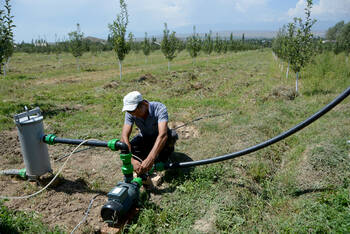
Practices and techniques are local-specific methods that use, preserve and improve biological and ecological processes in agricultural production. Thus, they create more diverse, resilient, and productive agroecosystems by using fewer external inputs. The core of their approach is to promote positive interactions and synergies between plants, animals, soil, water, and the agri-food system. Agricultural practices, with an ecological approach, emphasize diversification through combining crops and intercropping, using locally adapted seeds, implementing biological pest control, and applying green manure. Particularly, these practices focus on soil texture, water balance, and plant health.
更多
更多
[Translate to 中文:] By using sustainable practices and technologies, family farmers can increase the quality and sustainability of their products and reduce their dependence on external inputs.
Family farmers need to access, absorb, apply, collaborate and share the rich knowledge and know-how available. Efficient and effective co-creation and knowledge sharing can enhance the dissemination of innovations and information across different farming contexts from the local to the regional level.
The transformation to sustainable food systems requires a paradigm shift towards participatory and inclusive co-creation models for local innovation and adaptation of a territorial approach, bridging modern science and practice with traditional and local knowledge, and promoting both vertical and horizontal exchanges that empower producers.
